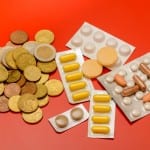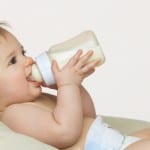This week’s edition of the Medical News Summary Blog will cover the latest on the status of the NHS, health research and top headlines relating to medicine. The medical news this week covers the key stories from the 25th to the 31st of January.
First Up in The Medical News: Cheaper Drugs

This week the conservative government have backed reforms allowing patients to access cheaper drugs. The government has backed a cross-party reform plan and has declared that it is committed to finding new ways to allow off-patent drugs to be prescribed to patients on the NHS, if evidence shows they could be beneficial. The drugs could be used to treat conditions such as breast cancer, Parkinson’s disease and multiple sclerosis. Currently, many drugs have been shown to have benefits beyond their presently licensed purposes. When drugs reach the end of their patent, manufacturers who then produce the drug have no commercial interest in seeking new licences for alternative purposes. Due to this, many doctors are unlikely to prescribe the drugs for their effective alternative purposes. The new measures are outlined in the Medical Treatments Innovation Bill.
Breast Feeding Research

New research released this week suggests that despite less than one per cent of children in the UK being breastfed up until 12 months, breastfeeding could save 800,000 babies’ lives every year. The research which was conducted by scientists at the Federal University of Pelotas, Brazil compiled data from 28 systematic reviews. They found that breastfeeding could prevent 20,000 deaths from breast cancer each year, improve the child’s intelligence, increase their life expectancy and reduce their chances of developing diabetes and obesity. Experts in the field have said that the study has shown why breastfeeding is the most appropriate way to provide nutrition to a baby. In the UK only 0.5% of children are breast fed until the age of 12 months, this is in comparison to 27% in the US, 44% in New Zealand and 92% in India.
NHS Out-Of-Hours service Under Pressure

Figures show that the NHS 111 out-of-hours service is under increasing pressure and has missed targets of answering calls within 60 seconds. The NHS 111 service is a non-emergency helpline which allows patients to access doctors during out-of-hours time. Figures show that there has been a huge rise in the number of calls last weekend, up 6% from the previous year. Only 79.9% of calls were answered within 60 seconds, which is below the target of 95%. Alongside this, the number of emergency admissions to hospitals in England has also risen. Richard Barker, the interim national director of commissioning operations for the NHS has put the increase down to the recent bad weather.
Uploaded by Alessandra on 1st February 2016
